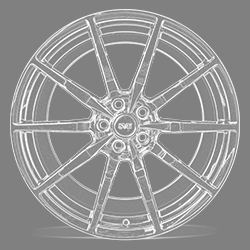The detonation resistance is only part of the story, lower octane fuel has more energy per molar mass than higher octane fuel.
molar mass? do you mean molecular weight? If you're refering to molecular weight then I believe that is incorrect also. It comes down to what gas actually is at a molecular level and how its refined out of crude oil.
The amount of energy contained in the gas is based on the carbon content. Gasoline is made by extracting carbon chains of a certain length (hydro-carbon molecules with a certain number of carbon atoms) from the oil in a process similar to distilling alcohol. Put in very simple terms, longer carbon chains are heavier, shorter carbon chains are lighter, only carbon chains containing a specific number of carbon atoms can be called gasoline. If the chains are longer, the product is heavier than gas, like diesel, kerosene, motor oil, etc. If the chains are shorter the product is lighter than gasoline, like propane. Each product has its own specific molecular weight which corresponds directly to the number of carbon atoms linked together in the molecules. This is all completely unrelated to octane, unless you want to start a discussion on cracking (a method used to get more gasoline from the crude than is naturally released in the normal refining process). As I said, octane is nothing more than a rating of a specific quality of the fuel, nothing else.
This is of course on average, and not as a direct result of the "octane" rating, but it is still a relationship that holds true. You seem intelligent enough to have understand what I meant.
Yes, I understand what you mean, I'm just saying that statement is incorrect. Based on my lengthly explanation above, if you have two tanks of fuel and one tank has a higher molecular weight fuel in it than the other tank, then regardless of what the octane rating is for either tank of fuel, they aren't the same fuel, i.e. they can't both be gasoline.
Now assuming both tanks are in fact gasoline but of different octane, that means both tanks of fuel are of the same molecular weight. I don't believe 2 molecules containing the same number of carbon atoms will release different amounts of energy when both are burned under the same conditions. This is what I base my belief on that the statement "lower octane gas = more power" is not true. Having said that, I know there are different factors in actually burning the gas to release the energy in it, and certain conditions favor releasing more of the contained energy (i.e. more efficient), after all a typical car engine is actually only utilizing less than 1/2 of the energy in the gas, so there is a lot of room for varying the hp output of the engine by altering the burn conditions and yes, octane will play a role in how effective certain changes will be, but this whole discussion was started on the basis of "all else being equal".
Now, if you want to start a discussion on how 2 molecules containing the same number of carbon atoms can release different amounts of energy under identical conditions, I'm open to that. If you have a reference of some test or statement from someone within an oil company that proves me wrong or supports your claim I'd love to hear it. Everything I stated about what gas is can be verified in any book at the library about refining oil or producing gasoline. It's 100 year old tech that isn't very hard to understand. I've done a lot of reading on the subject myself, prompted by being proven wrong in a discussion similar to this one decades ago, but I'm not a chemical engineer and I'll be the 1st to admit that I don't have full understanding of the processes involved when it comes to releasing energy at a molecular level. Do you?




